![[Updated] The Solitary Path to Podcast Popularity](https://thmb.techidaily.com/83a5e7f4b304717df57e5c96a8beb60fe39d761265a0a53063f5a3b844f4f838.png)
[Updated] The Solitary Path to Podcast Popularity

The Solitary Path to Podcast Popularity
When solo podcasting, you face a unique set of challenges you won’t see when recording alongside a host or co-host. It’s up to you to decide everything about the podcast, like the episode’s length, topics, and more.
In this article, we’ll break down some of the things you want to consider before starting your solo podcast, so stick to the end.
- The Rob Auton Daily
- You Must Remember This
- Live From the 405
- Have You Heard George’s Podcast
- Casefile True Crime
- This American Life
- WTF with Marc Maron
- Reply All
- The Lazy Genius Podcast
- Say Your Mind
Part 1. Why Solo Podcasting?

Solo podcasting is all about the personal connection with listeners. It’s a chance to express yourself, a platform to share your ideas and thoughts with people. Also, to show people who you are and what you’re about—the beauty of solo podcasting. You are free, and it’s a great feeling. The idea is simple: You are the protagonist of your own story.
Go at your own pace
Working on your own gives flexibility with working hours you wouldn’t get as part of a team. That means you can work at your own pace and not feel pressured by a deadline or fear failing since knowing no one but yourself is listening.
It also means you can work at your own pace as a podcast host without waiting for your audience to be ready.
Content is totally under your control
You’re always controlling your content while working in a solo podcaster scenario. No one else tells you what to say; no one tells you how to say it.
The upside is that you don’t have to worry about getting your ideas “out there,” which allows you to be creative.No but yourself can dictate the tone of your show.
Solo podcasters don’t have anyone else to compete with, and they get to choose what they talk about. You’re in full control over everything, which means no advertisers or sponsors are dictating your message.
That means you can ensure that you deliver a compelling story that people want to hear.
Post-Production is Easier
When you work alone, you can take time to make changes or re-edits. Post-production is also easier to deal with if you don’t have the pressure to deliver something at a certain time.
Connect with Your Audience on a Deeper Level
Solo podcasting is one of the most efficient ways to build relationships with your audience and connect with them deeper.
When you’re just starting, your audiences don’t know who you are. So you’ll likely struggle to connect with them on a personal level. But By developing a solo podcast, you allow yourself to develop a personal brand while building a network of people who share your same passion and interests.
Keep your content focused on your unique story, and be as transparent as possible when you get started. Most listeners prefer to connect with the hosts they find on podcasts than on other media, And Solo Podcast listeners trust their hosts as experts on their topics.
Part 2. How to Make a Bang-Up Solo Podcast
Now, we are going to look into the ins and outs of creating a Bang-Up Solo Podcast that would grab your viewers’ maximum attention. But first, we must share something interesting in a way that they understand, And this is what will make your podcast an excellent solo podcast.
A list of solo episode topics
First, while working on the episode, we must remember that connecting audience with your subject matters.

For example, if you’re a musician who wants to share insights on improving your songwriting craft, you may need to focus on it. Secondly, before creating an episode, our Listeners may want to hear the story behind the product, so it’s helpful to explain why you built it, what your goals were, what you learned, what you got done, and how the product has evolved.
It will help you give clear instructions for deciding on solo episode topics that are creative, unique, helpful & engaging to share.
An outline for an episode
One common mistake when creating a podcast is jumping into it without a plan. Therefore it’s important to have some roadmap for your episode before you even begin working on it.
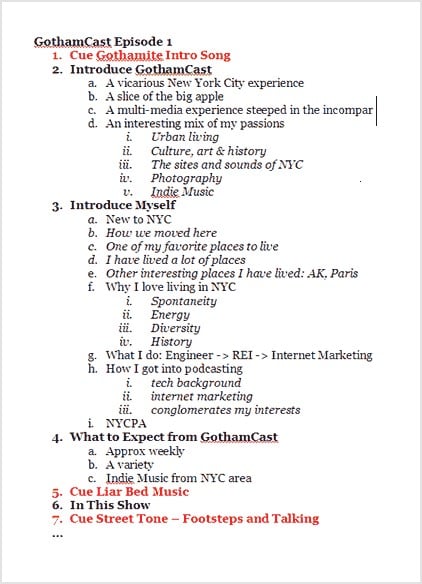
An outline for a good episode usually includes an introduction/promo, the main topic, a break, a conclusion, and a wrap-up. It helps you understand the topic you want to cover.
If you don’t have a clear idea of what you want to talk about, you will have trouble following along when you sit down to record. Just be careful not to repeat yourself too much. Don’t try and cover every single aspect of your topic.
A hook for the episode beginning
The hook is the first thing that draws the listener in and sets up the rest of the content. What is it about your show that makes people want to listen? Your hook should always be unique, but a little commonality doesn’t hurt.
If you’re struggling to come up with a hook for an episode of your podcast, here are a few ideas for you to consider:
- What topic do you enjoy talking about?
- What do you want to learn about?
- Is there something, in particular, you’re interested in?
Mind the length of your solo podcast
Length is everything. Podcasting is about the length of your content, and you will struggle if you have a short episode. You need at least 30 minutes of material for your episode, or you risk alienating listeners and driving them away from your brand.
You’ll lose listeners’ attention if you don’t know what to say during your episode. So instead, think of your podcast as a mini-publication. You can get away with making shorter episodes because you can fill more content into your episodes.
Recap the episode
Recapping the previous episode is a great way to start your podcast. Doing so allows your listeners to quickly catch up while at the same time giving you a chance to share the most relevant information from the last show.
That way, when the next podcast episode starts, your listeners will already be up-to-date on essential information.
The right tool for recording and editing
As the popularity of podcasts continues to grow, so does the need for quality, professional sound recordings and editing tools.
If you’re a podcaster looking to record and edit, Wondershare Filmora must be your priority.
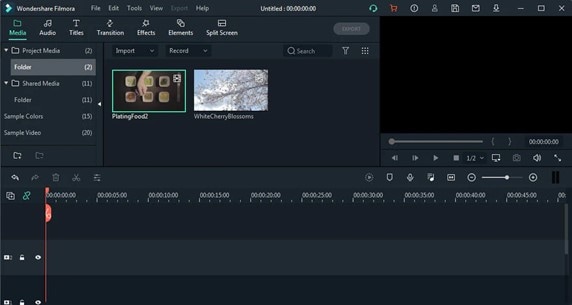
For those who would like to produce podcasts or videos on the go, Wondershare Filmora is not only an easy-to-use video editing software but also a good helper for podcast editing.
- Speech-to-text allows smooth conversion of voiceover to text, making your podcasts more accessible.
- Over 2000+ audio resources range from music, audio effects and much more.
- Remove background noise, fade in, fade out, and do lots more audio editing without hassles.
- Supports many shortcut key commands to help tech-savvy and non-tec-savvy individuals to create and edit podcasts quickly.
- Audio Ducking to easily eliminate background noise and unwanted sound recorded while creating podcasts.
You can export your episodes as MP3 files, which can then be uploaded to any podcast hosting site like iTunes, Podomatic, and Libsyn. With this application, you don’t need to spend hours of your time to make your podcast a success.
Part 3. Tips & Takeaways for Solo Podcasting
The world of podcasts is changing, so how can podcasters succeed when there’s so much competition? We asked three podcasters how to get started, who have grown as solo podcasters. Here are their top tips and lessons, plus advice from fellow podcasters.
Don’t worry about mistakes
The first tip for solo podcasters is to not worry about making mistakes. We all make mistakes. And when we do, we learn. So don’t stress out over your first podcast. Instead, take notes after each episode and use those as your learning curve. You don’t need to be perfect from the very beginning.
Practice
It takes some practice to get the natural flow of conversation going. We recommend practicing speaking in front of a mirror to ensure you sound confident and natural. Once you’ve practiced enough, record yourself, listen back, and play it to see where you’re strong and where you need to improve.
Stand a point
A key part of being a successful podcast host is sticking to your bullet points. While the show is running, there’s no time for you to ramble, so your goal is to make sure you hit all your points and move on quickly.
Have fun
Having fun doesn’t mean that you’re doing something wrong. But it does mean relaxing. You’re doing something right. People are more likely to listen if they know you’re having fun while you talk. On the other hand, if you take yourself too seriously, people will tune out.
Part 4. The challenges of making solo podcasting
If you’re working on a podcast as a solo podcast host, you need to figure out where to find guests, approach them, and create a rapport with your listeners. The challenges of making solo podcasting are many. Whether you make music or talk about your favourite hobby or sport, someone is likely there who can help you.
No one to share the workload
There’s no denying it, being a solo podcast host is hard work. There’s no one to take over if you fall behind schedule or have a day off. Being a solo podcast host takes a lot of time and energy, and you don’t get a choice.
Even if you manage to pull it off, some people don’t like your podcast and have nothing but negative things to say about you. Preparing for this every time you create a new episode would be best. Therefore You need to have someone to take over when you fall.
Harder to stay motivated
The problem with solo podcasts is that there is no built-in motivation. You must do it because you enjoy it or hope it will help someone else. There’s no intrinsic reason to do it. That said, the biggest problem with making solo podcasts is that it becomes harder and harder to stay motivated to keep making episodes.
Harder to deliver a Montage
If your podcast is mostly monologue or narration, and you don’t do any interviews or interviews with yourself, you will feel like a hamster in a wheel with no release.
To deliver a montage effectively, you must first create a soundtrack of voiceover audio in your mind. It would be best to hear it repeatedly until you’ve committed the track to memory. Once you have that, you must record the monologue audio and edit it into a montage.
Part 5. The Best 10 Solo Podcasts Examples
The most popular podcasts have millions of listeners; some even have billions. The problem is, listening to a podcast takes time. That’s why we created this list of the best solo podcasts to help you connect with your type of audience faster and easier.
1. The Rob Auton Daily
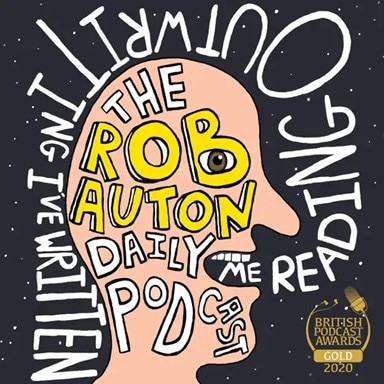
“Rob Auton Daily Podcast” is a daily podcast by Rob Auton. In each episode, Rob will read a piece he has written that he likes enough and wants to share with the people. The podcast tells short stories, comedy, poetry, literature, and more from a Yorkshire accent.
Like his live shows, the daily podcast is whimsical, thoughtful, and funny. He says beautiful, original, funny, thought-provoking things in such simple language. He has a gentle voice offering a chance each day to think about some part of the world in a new and unusual way. His podcast length is variable but just right, i.e., not so long as to become an obligation.
2. You Must Remember This
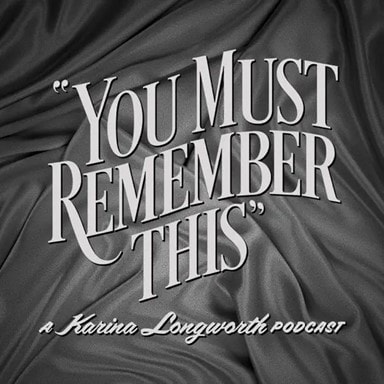
“You Must Remember This” is a podcast that explores the history and the forgotten stories of the first century of Hollywood. Since launching in April 2014, You Must Remember This has quickly become one of the best film podcasts. This podcast is an illustrated work of creative nonfiction. Karina Longworth solely has written, produced, and narrated this podcast.
It is an exciting show. If you like movies, Hollywood, or captivating storytelling, this podcast is a must-listen!
3. Live From the 405

Luke Allen, who lives in L.A., spends an unhealthy amount of time in L.A. traffic. He is an artist and writer for Funny Or Dies and an amateur stand-up comedian. The show is all about his social observations, rants, complaints, movie reviews, and weekly life wrap-ups.
Live From the 405 isn’t like any other podcast out there. Each week, Allen goes live from the Los Angeles freeway, where he interviews musicians, comedians, and other interesting people and gives them a platform to share their stories. Allen brings a unique perspective to the podcast and makes it easy to listen to.
4. Have You Heard George’s Podcast

The award-winning and critically acclaimed podcast from George the Poet delivers a fresh take on inner-city life. It’s about the issues that matter to urban youth today.
It is a wildly creative podcast filled with nuance and poetic genius. The way George addresses all the issues our society is tackling is uniquely captivating. George takes you on a journey to greater understanding in this insightful podcast that will challenge you to think deeper about real life. Plus, this podcast has incredible soundtracks, storylines, and dream-like narratives.
5. Casefile True Crime
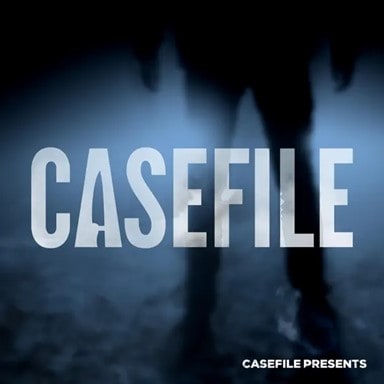
This podcast is an award-winning true-crime podcast that offers unforgettable stories professionally produced and delivered to your ears. This one-person side project has evolved into an entirely different business and has expanded across multiple continents. Casefile episodes are about solving and investigating the world’s mysteries. They feature stories about unsolved cases from all over the world.
Well, there are many reasons to listen to this podcast. First, it is engaging, well-researched, and most refreshing of all for this genre. If you want an in-depth analysis of any case, look no further than Casefile because their reporting is detailed, and they have access to the right sources.
6. This American Life

This American Life is a public radio program and podcast that broadcasts weekly. Each week they choose a theme, and they give us a different kind of story for that theme. This American Life podcast has reached an audience of over 2 million people per week on over 500 public radio stations in the U.S.
This podcast is about journalism, but it’s about a more entertaining kind of journalism. In other words, stories! Interesting stories where the characters are real, the ideas are true, the feeling is deep, and the humor comes from life.
7. WTF with Marc Maron
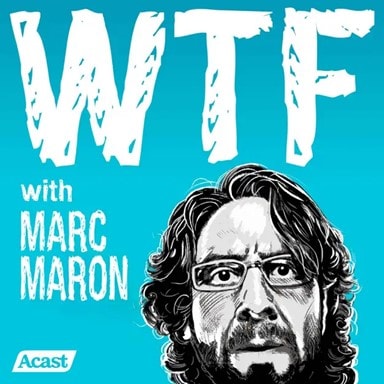
Comedy legend Marc Maron has turned his brilliant comedy into a bestselling podcast that gets more than 55 million listens per year. His best interviews include icons like Keith Richard, Robin Williams, Nicole Kidman, and former U.S. president Barack Obama.
In WTF with Marc Maron, he takes his unique blend of humor and emotional vulnerability and shares it with us. The conversation doesn’t stay dark for long-his own self-deprecating sense of humor keeps it moving.
8. Reply All

Reply All is an American podcast that features stories about how people shape the internet and how the internet shapes people. The show was created by Paul J. Vogt and Alex Goldman, the show’s original hosts.
Reply All podcast is an amazing mix of in-depth and incredibly moving stories of people whose stories you’ll never hear elsewhere. Reply All podcast rivalled Netflix’s true crime documentaries and is one of the most compelling podcasts to listen to.
9. The Lazy Genius Podcast
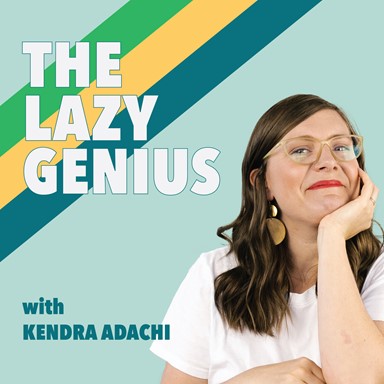
Systems expert, permission giver, and author, Kendra Adachi, is the solo host of the podcast ‘The Lazy Genius.’ It helps you be a genius about the things that matter and lazy about the things that don’t.
Kendra listeners get great, practical advice in a friendly and relatable way. In addition, the episodes are a manageable length, which means you can listen to them quickly or put them in a queue if you’re listening.
10. Say Your Mind

A great comedian with some serious insights into astrology and Tarot cards, Kelechi Okafor, takes you on a wild journey around the world of bad language, current events, and pop culture.
Kelechi, with a great mind, teaches and guides her listeners to lean into their inner selves while boldly speaking on world events others seek to avoid. She mixes humor with the truth and commentary on current affairs/pop culture.
Final words
It’s important to note here that while podcasting has been around for quite some time, the “Solo” style, which focuses on the creative process and inspiration behind the creation of a podcast, is relatively new.
If you’re planning to do a solo podcast, you need to create a clear outline of what you want to cover, your goals, and what you expect from the podcast. Remember, a good podcast takes time and effort to produce, so make sure you put in the necessary time and effort to get the best results.
Free Download For Win 7 or later(64-bit)
Free Download For macOS 10.14 or later
Part 1. Why Solo Podcasting?

Solo podcasting is all about the personal connection with listeners. It’s a chance to express yourself, a platform to share your ideas and thoughts with people. Also, to show people who you are and what you’re about—the beauty of solo podcasting. You are free, and it’s a great feeling. The idea is simple: You are the protagonist of your own story.
Go at your own pace
Working on your own gives flexibility with working hours you wouldn’t get as part of a team. That means you can work at your own pace and not feel pressured by a deadline or fear failing since knowing no one but yourself is listening.
It also means you can work at your own pace as a podcast host without waiting for your audience to be ready.
Content is totally under your control
You’re always controlling your content while working in a solo podcaster scenario. No one else tells you what to say; no one tells you how to say it.
The upside is that you don’t have to worry about getting your ideas “out there,” which allows you to be creative.No but yourself can dictate the tone of your show.
Solo podcasters don’t have anyone else to compete with, and they get to choose what they talk about. You’re in full control over everything, which means no advertisers or sponsors are dictating your message.
That means you can ensure that you deliver a compelling story that people want to hear.
Post-Production is Easier
When you work alone, you can take time to make changes or re-edits. Post-production is also easier to deal with if you don’t have the pressure to deliver something at a certain time.
Connect with Your Audience on a Deeper Level
Solo podcasting is one of the most efficient ways to build relationships with your audience and connect with them deeper.
When you’re just starting, your audiences don’t know who you are. So you’ll likely struggle to connect with them on a personal level. But By developing a solo podcast, you allow yourself to develop a personal brand while building a network of people who share your same passion and interests.
Keep your content focused on your unique story, and be as transparent as possible when you get started. Most listeners prefer to connect with the hosts they find on podcasts than on other media, And Solo Podcast listeners trust their hosts as experts on their topics.
Part 2. How to Make a Bang-Up Solo Podcast
Now, we are going to look into the ins and outs of creating a Bang-Up Solo Podcast that would grab your viewers’ maximum attention. But first, we must share something interesting in a way that they understand, And this is what will make your podcast an excellent solo podcast.
A list of solo episode topics
First, while working on the episode, we must remember that connecting audience with your subject matters.

For example, if you’re a musician who wants to share insights on improving your songwriting craft, you may need to focus on it. Secondly, before creating an episode, our Listeners may want to hear the story behind the product, so it’s helpful to explain why you built it, what your goals were, what you learned, what you got done, and how the product has evolved.
It will help you give clear instructions for deciding on solo episode topics that are creative, unique, helpful & engaging to share.
An outline for an episode
One common mistake when creating a podcast is jumping into it without a plan. Therefore it’s important to have some roadmap for your episode before you even begin working on it.

An outline for a good episode usually includes an introduction/promo, the main topic, a break, a conclusion, and a wrap-up. It helps you understand the topic you want to cover.
If you don’t have a clear idea of what you want to talk about, you will have trouble following along when you sit down to record. Just be careful not to repeat yourself too much. Don’t try and cover every single aspect of your topic.
A hook for the episode beginning
The hook is the first thing that draws the listener in and sets up the rest of the content. What is it about your show that makes people want to listen? Your hook should always be unique, but a little commonality doesn’t hurt.
If you’re struggling to come up with a hook for an episode of your podcast, here are a few ideas for you to consider:
- What topic do you enjoy talking about?
- What do you want to learn about?
- Is there something, in particular, you’re interested in?
Mind the length of your solo podcast
Length is everything. Podcasting is about the length of your content, and you will struggle if you have a short episode. You need at least 30 minutes of material for your episode, or you risk alienating listeners and driving them away from your brand.
You’ll lose listeners’ attention if you don’t know what to say during your episode. So instead, think of your podcast as a mini-publication. You can get away with making shorter episodes because you can fill more content into your episodes.
Recap the episode
Recapping the previous episode is a great way to start your podcast. Doing so allows your listeners to quickly catch up while at the same time giving you a chance to share the most relevant information from the last show.
That way, when the next podcast episode starts, your listeners will already be up-to-date on essential information.
The right tool for recording and editing
As the popularity of podcasts continues to grow, so does the need for quality, professional sound recordings and editing tools.
If you’re a podcaster looking to record and edit, Wondershare Filmora must be your priority.

For those who would like to produce podcasts or videos on the go, Wondershare Filmora is not only an easy-to-use video editing software but also a good helper for podcast editing.
- Speech-to-text allows smooth conversion of voiceover to text, making your podcasts more accessible.
- Over 2000+ audio resources range from music, audio effects and much more.
- Remove background noise, fade in, fade out, and do lots more audio editing without hassles.
- Supports many shortcut key commands to help tech-savvy and non-tec-savvy individuals to create and edit podcasts quickly.
- Audio Ducking to easily eliminate background noise and unwanted sound recorded while creating podcasts.
You can export your episodes as MP3 files, which can then be uploaded to any podcast hosting site like iTunes, Podomatic, and Libsyn. With this application, you don’t need to spend hours of your time to make your podcast a success.
Part 3. Tips & Takeaways for Solo Podcasting
The world of podcasts is changing, so how can podcasters succeed when there’s so much competition? We asked three podcasters how to get started, who have grown as solo podcasters. Here are their top tips and lessons, plus advice from fellow podcasters.
Don’t worry about mistakes
The first tip for solo podcasters is to not worry about making mistakes. We all make mistakes. And when we do, we learn. So don’t stress out over your first podcast. Instead, take notes after each episode and use those as your learning curve. You don’t need to be perfect from the very beginning.
Practice
It takes some practice to get the natural flow of conversation going. We recommend practicing speaking in front of a mirror to ensure you sound confident and natural. Once you’ve practiced enough, record yourself, listen back, and play it to see where you’re strong and where you need to improve.
Stand a point
A key part of being a successful podcast host is sticking to your bullet points. While the show is running, there’s no time for you to ramble, so your goal is to make sure you hit all your points and move on quickly.
Have fun
Having fun doesn’t mean that you’re doing something wrong. But it does mean relaxing. You’re doing something right. People are more likely to listen if they know you’re having fun while you talk. On the other hand, if you take yourself too seriously, people will tune out.
Part 4. The challenges of making solo podcasting
If you’re working on a podcast as a solo podcast host, you need to figure out where to find guests, approach them, and create a rapport with your listeners. The challenges of making solo podcasting are many. Whether you make music or talk about your favourite hobby or sport, someone is likely there who can help you.
No one to share the workload
There’s no denying it, being a solo podcast host is hard work. There’s no one to take over if you fall behind schedule or have a day off. Being a solo podcast host takes a lot of time and energy, and you don’t get a choice.
Even if you manage to pull it off, some people don’t like your podcast and have nothing but negative things to say about you. Preparing for this every time you create a new episode would be best. Therefore You need to have someone to take over when you fall.
Harder to stay motivated
The problem with solo podcasts is that there is no built-in motivation. You must do it because you enjoy it or hope it will help someone else. There’s no intrinsic reason to do it. That said, the biggest problem with making solo podcasts is that it becomes harder and harder to stay motivated to keep making episodes.
Harder to deliver a Montage
If your podcast is mostly monologue or narration, and you don’t do any interviews or interviews with yourself, you will feel like a hamster in a wheel with no release.
To deliver a montage effectively, you must first create a soundtrack of voiceover audio in your mind. It would be best to hear it repeatedly until you’ve committed the track to memory. Once you have that, you must record the monologue audio and edit it into a montage.
Part 5. The Best 10 Solo Podcasts Examples
The most popular podcasts have millions of listeners; some even have billions. The problem is, listening to a podcast takes time. That’s why we created this list of the best solo podcasts to help you connect with your type of audience faster and easier.
1. The Rob Auton Daily

“Rob Auton Daily Podcast” is a daily podcast by Rob Auton. In each episode, Rob will read a piece he has written that he likes enough and wants to share with the people. The podcast tells short stories, comedy, poetry, literature, and more from a Yorkshire accent.
Like his live shows, the daily podcast is whimsical, thoughtful, and funny. He says beautiful, original, funny, thought-provoking things in such simple language. He has a gentle voice offering a chance each day to think about some part of the world in a new and unusual way. His podcast length is variable but just right, i.e., not so long as to become an obligation.
2. You Must Remember This

“You Must Remember This” is a podcast that explores the history and the forgotten stories of the first century of Hollywood. Since launching in April 2014, You Must Remember This has quickly become one of the best film podcasts. This podcast is an illustrated work of creative nonfiction. Karina Longworth solely has written, produced, and narrated this podcast.
It is an exciting show. If you like movies, Hollywood, or captivating storytelling, this podcast is a must-listen!
3. Live From the 405

Luke Allen, who lives in L.A., spends an unhealthy amount of time in L.A. traffic. He is an artist and writer for Funny Or Dies and an amateur stand-up comedian. The show is all about his social observations, rants, complaints, movie reviews, and weekly life wrap-ups.
Live From the 405 isn’t like any other podcast out there. Each week, Allen goes live from the Los Angeles freeway, where he interviews musicians, comedians, and other interesting people and gives them a platform to share their stories. Allen brings a unique perspective to the podcast and makes it easy to listen to.
4. Have You Heard George’s Podcast

The award-winning and critically acclaimed podcast from George the Poet delivers a fresh take on inner-city life. It’s about the issues that matter to urban youth today.
It is a wildly creative podcast filled with nuance and poetic genius. The way George addresses all the issues our society is tackling is uniquely captivating. George takes you on a journey to greater understanding in this insightful podcast that will challenge you to think deeper about real life. Plus, this podcast has incredible soundtracks, storylines, and dream-like narratives.
5. Casefile True Crime

This podcast is an award-winning true-crime podcast that offers unforgettable stories professionally produced and delivered to your ears. This one-person side project has evolved into an entirely different business and has expanded across multiple continents. Casefile episodes are about solving and investigating the world’s mysteries. They feature stories about unsolved cases from all over the world.
Well, there are many reasons to listen to this podcast. First, it is engaging, well-researched, and most refreshing of all for this genre. If you want an in-depth analysis of any case, look no further than Casefile because their reporting is detailed, and they have access to the right sources.
6. This American Life

This American Life is a public radio program and podcast that broadcasts weekly. Each week they choose a theme, and they give us a different kind of story for that theme. This American Life podcast has reached an audience of over 2 million people per week on over 500 public radio stations in the U.S.
This podcast is about journalism, but it’s about a more entertaining kind of journalism. In other words, stories! Interesting stories where the characters are real, the ideas are true, the feeling is deep, and the humor comes from life.
7. WTF with Marc Maron

Comedy legend Marc Maron has turned his brilliant comedy into a bestselling podcast that gets more than 55 million listens per year. His best interviews include icons like Keith Richard, Robin Williams, Nicole Kidman, and former U.S. president Barack Obama.
In WTF with Marc Maron, he takes his unique blend of humor and emotional vulnerability and shares it with us. The conversation doesn’t stay dark for long-his own self-deprecating sense of humor keeps it moving.
8. Reply All

Reply All is an American podcast that features stories about how people shape the internet and how the internet shapes people. The show was created by Paul J. Vogt and Alex Goldman, the show’s original hosts.
Reply All podcast is an amazing mix of in-depth and incredibly moving stories of people whose stories you’ll never hear elsewhere. Reply All podcast rivalled Netflix’s true crime documentaries and is one of the most compelling podcasts to listen to.
9. The Lazy Genius Podcast

Systems expert, permission giver, and author, Kendra Adachi, is the solo host of the podcast ‘The Lazy Genius.’ It helps you be a genius about the things that matter and lazy about the things that don’t.
Kendra listeners get great, practical advice in a friendly and relatable way. In addition, the episodes are a manageable length, which means you can listen to them quickly or put them in a queue if you’re listening.
10. Say Your Mind

A great comedian with some serious insights into astrology and Tarot cards, Kelechi Okafor, takes you on a wild journey around the world of bad language, current events, and pop culture.
Kelechi, with a great mind, teaches and guides her listeners to lean into their inner selves while boldly speaking on world events others seek to avoid. She mixes humor with the truth and commentary on current affairs/pop culture.
Final words
It’s important to note here that while podcasting has been around for quite some time, the “Solo” style, which focuses on the creative process and inspiration behind the creation of a podcast, is relatively new.
If you’re planning to do a solo podcast, you need to create a clear outline of what you want to cover, your goals, and what you expect from the podcast. Remember, a good podcast takes time and effort to produce, so make sure you put in the necessary time and effort to get the best results.
Free Download For Win 7 or later(64-bit)
Free Download For macOS 10.14 or later
Also read:
- [New] Optimal FPS in Low-Speed Clips
- [Updated] Best Tiktok Video Editing Tips
- [Updated] Top Choice Microphones for YouTube Creators
- 2024 Approved How to Prevent YouTube From Starting Video Before You Watch
- 2024 Approved The Complete VivaCut Overview Editor's Deep Dive
- In 2024, The Comprehensive Directory for GoT Ringtones Download
- Maximize Device Longevity: Charge & Regulate Temperature of Apple Tech Using the All-in-One MagSafe Dock - ZDNET's Review
- Melodic Sharing Safeguarded by Insta Laws
- Troubleshooting Audio Issues: How a Faulty Sound Card Could Be the Culprit - Tips by YL Software Experts
- Title: [Updated] The Solitary Path to Podcast Popularity
- Author: Christopher
- Created at : 2025-02-02 20:24:27
- Updated at : 2025-02-10 00:58:26
- Link: https://some-approaches.techidaily.com/updated-the-solitary-path-to-podcast-popularity/
- License: This work is licensed under CC BY-NC-SA 4.0.